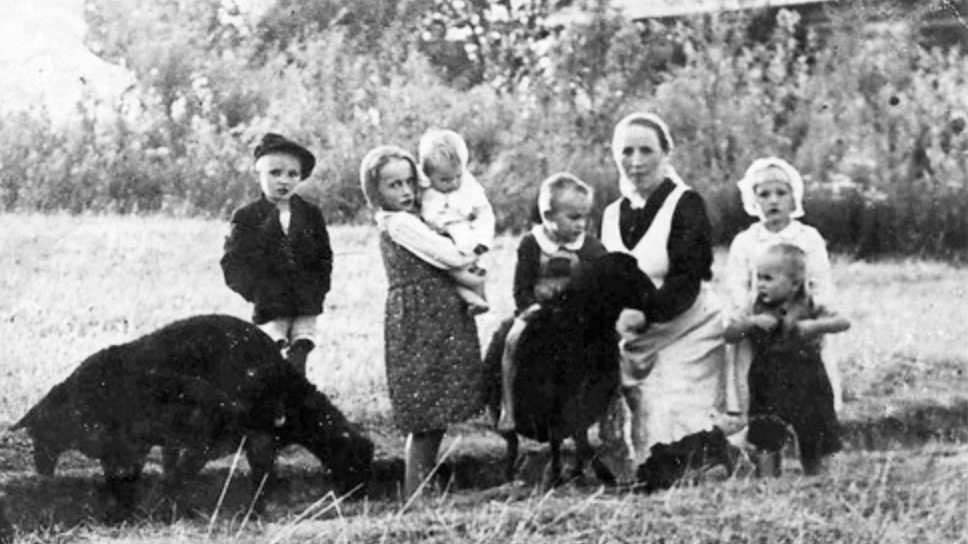
Wiktoria Ulma and children.
Józef Ulma, Public domain, via Wikimedia Commons
In the 1940s, Nazis murdered the Ulma family. Now, for the first time in the history of the Catholic Church, an entire family will be beatified. Just as significant, the beatification will include another first: the recognition of the salvation of an unborn child.
Józef and Wiktoria Ulma were a Polish husband and wife who lived in the village of Markowa with their children during World War II. Markowa is a small village located in the southeast of Poland, not so far from today’s Ukrainian border. Józef and Wiktoria were locally known to be pious, committed people, always keen on helping others.
The town of Markowa had already been raided by the German gendarmerie in 1942, resulting in the arrest and deportation of several Jewish families living there. Some of them—eight people—were saved by taking refuge with the Ulma family. It was this act of bravery, a decision that brought them local denunciation, that made them the target of an Ordnungspolizei (German police) expedition two years later.
In the early hours of 24 March 1944, the Ulma house was surrounded. The entire family, including the children, were executed on the spot by the Nazis. Józef and Wiktoria Ulma had six children, and Wiktoria was expecting a seventh, being eight months pregnant. The people of the village in charge of burying the bodies of the victims discovered a few days later that the baby was in fact half-born in the tomb of the poor mother.
The baby is going to be canonized like the other members of the family. The news is causing a stir because it marks the first time that an unborn child has been beatified. This decision by the Church emphasizes the value of every human life and serves as a testament to the Church’s commitment to promoting a culture of life.
For centuries, theologians in the Catholic Church have debated this question of the status of the unborn who die before being baptized, since the Catholic Church has always maintained the necessity of sacramental baptism to salvation. But, while water and chrism oil, along with the solemn words “I baptize you in the name of the Father, and of the Son, and of the Holy Spirit,” are the usual form of sacrament, the grace of baptism may be achieved through other means. There are those who, like St. Dismas, while dying on calvary next to Jesus, experienced a baptism of desire; there are the unbaptised martyrs and children who, having been killed due to hatred for Christ and his Church, experience a baptism of blood. Such was the fate of the male babies, the Holy Innocents, who were slaughtered in Herod’s effort to destroy the Christ child. The Nazis exercised the same evil acts in their efforts to exterminate the righteous. Pope John Paul II specifically named Nazi violence as anti-Christian in nature: “the systematic hatred of (whole categories of) humanity propagated by the Nazi regime was in itself inherently an act of hatred of religious (Christian) faith.”
The unborn Ulma child died a victim of hatred toward those who upheld the Christian edict to love thy neighbor. The Ulma family’s postulator—Father Witold Burda—who is responsible for making the case for beatification or sainthood, said that a Bible had been found in the family home with the passage of the Good Samaritan underlined in red. Fr. Burda also said the family was known for their strong Catholic faith and for being “willing to help anyone who knocked on their door.”
The heroism of the family has long been acknowledged. In 1995, they were recognized as “Righteous Among the Nations” by Yad Vashem, the Israeli Holocaust museum and memorial. In 2003, the Catholic Church began the beatification process for this family, alongside 122 other Poles who died in WWII.
The Ulma family is set to be beatified on September 10th, the feast day of St. Nicholas of Tolentino, a patron saint of holy souls in Purgatory.
